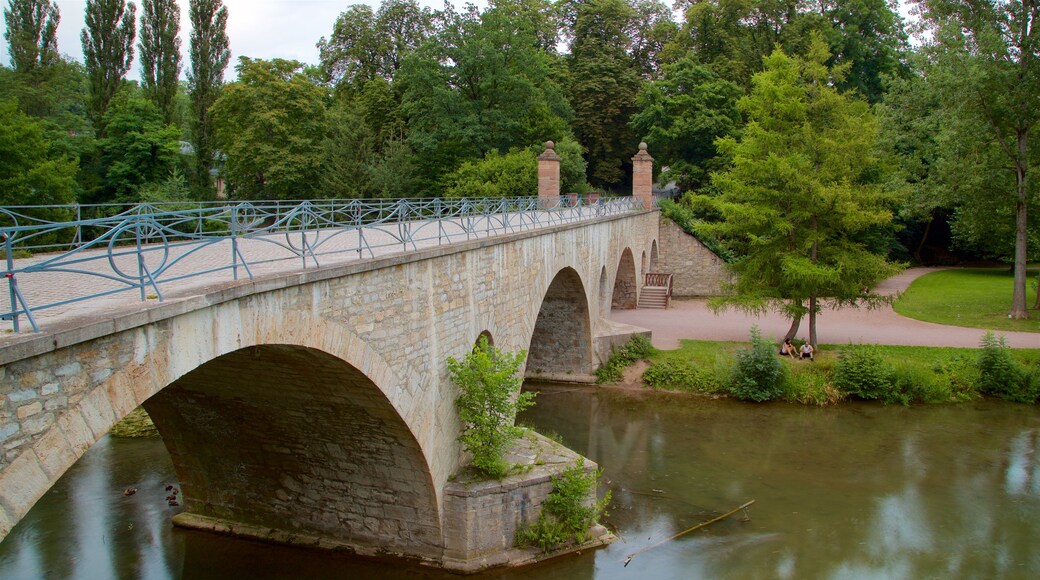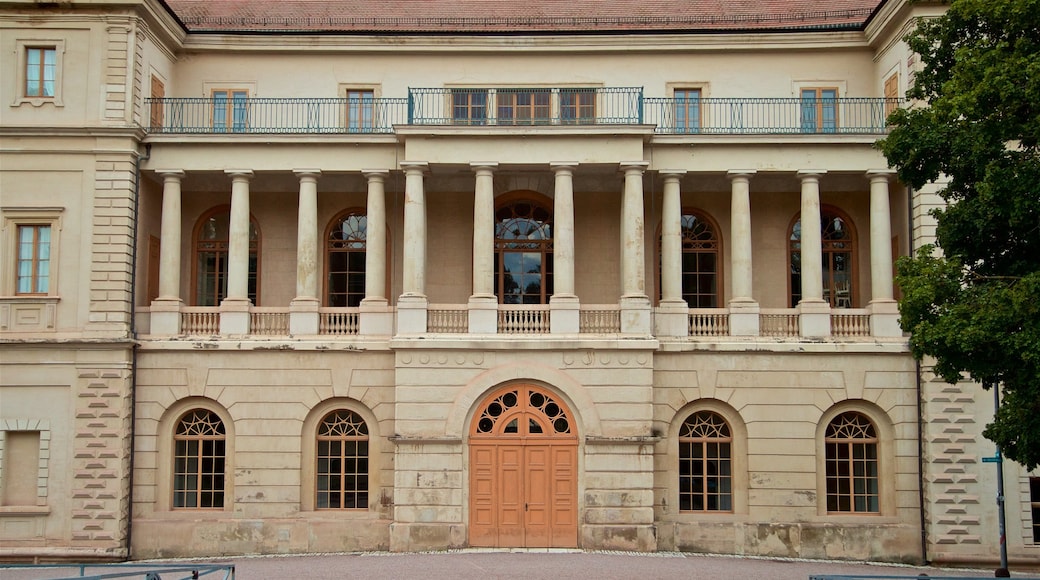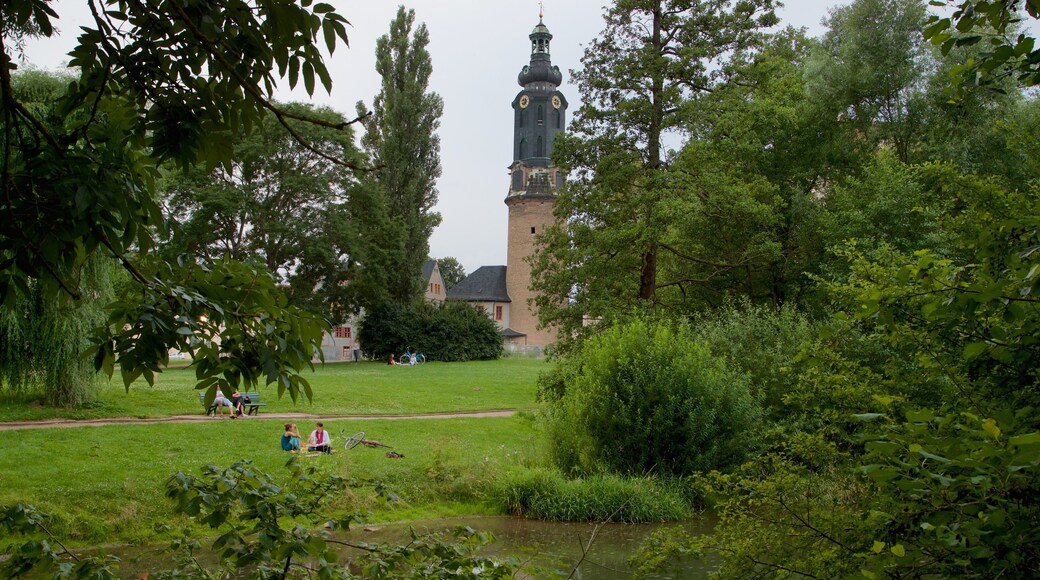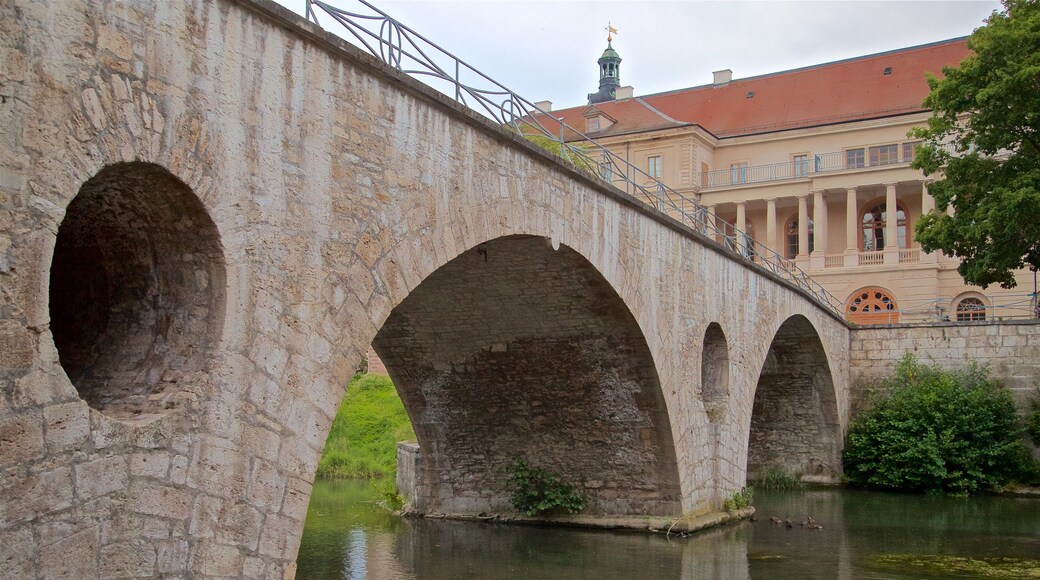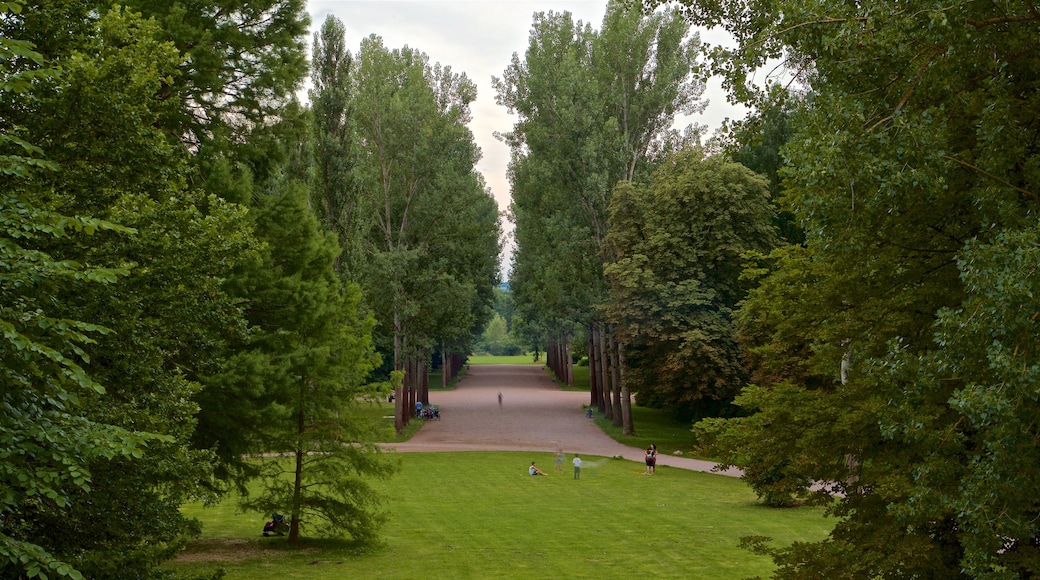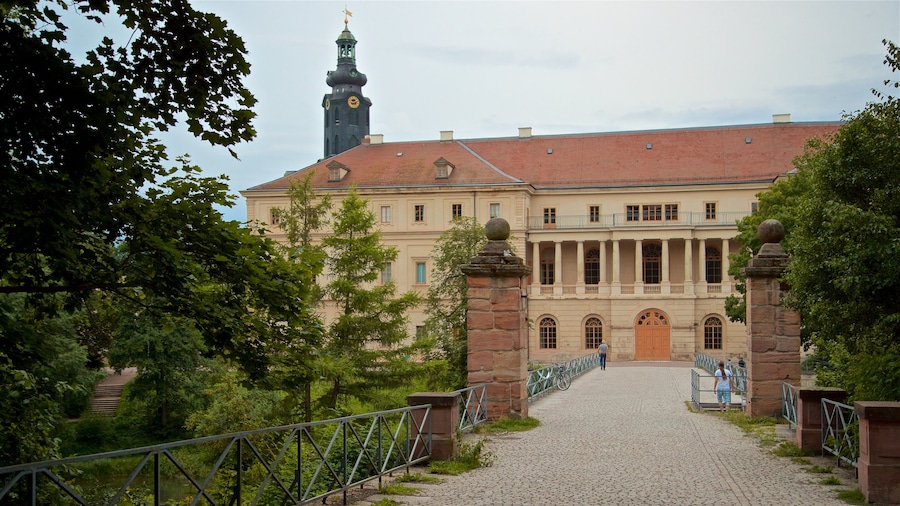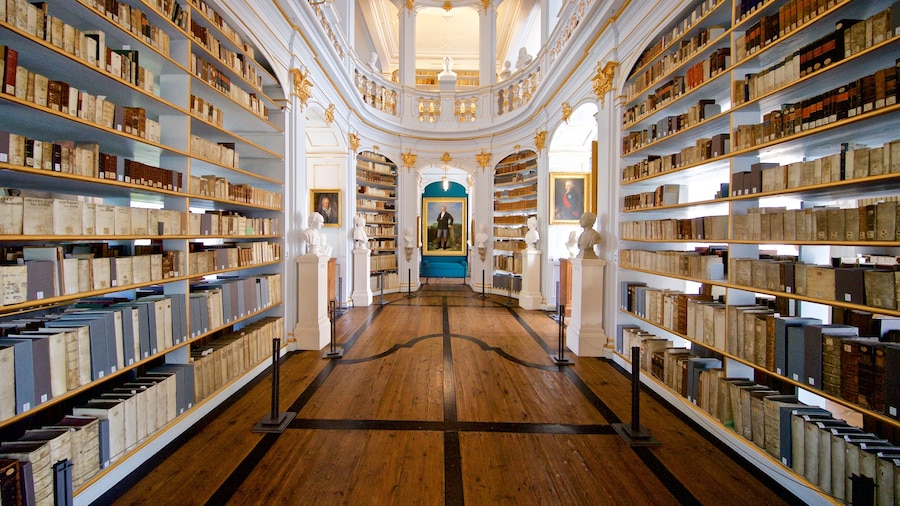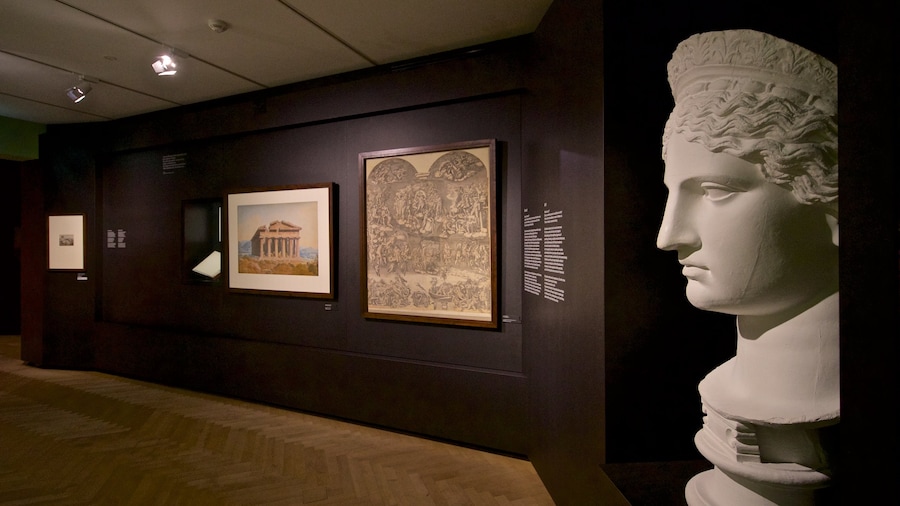Stroll through this vast and peaceful riverside park, which contains three historic houses with ties to a famous writer, a well-known composer and a duke.
The verdant and tranquil Park an de Ilm stretches out for over half a mile (1 kilometer) alongside the riverfront. Explore the 119-acre (48-hectare) space that encompasses walking paths, lawns, monuments and three historic houses.
Come to the park to escape the busy city. Paths crisscrossing the site lead past monuments, statues and small bridges. During summer, the warm weather, green grass and blooming flowers make it an appealing place to picnic.
Seek out Goethe’s Gartenhouse, a gift to Goethe from Duke Carl August, which sits within the modern-day park boundaries. The house was one of the first developments in the park, with the Faust author moving here in 1776 and staying here until 1782. After the writer departed, the house became a pilgrimage spot for fans of the German literary great. Take a tour of the house’s interior. It has been restored to resemble how it would have appeared back when Goethe lived here.
Walk to the top of a bluff in the park to reach the entrance to the neoclassical-style Römisches Haus, or Roman House as it’s known in English. Constructed between 1791 and 1797 as a summer retreat for Duke Carl August, the building is designed to resemble ancient Roman constructions, and features classical-style columns and an atrium. Look inside restored rooms, including the Blue Salon, used for social events and the Yellow Salon, which served as the duke’s private study.
Make your way to the western boundary of the park to see the Listz-Haus. Originally a gardener’s lodge, the house was remodeled in the 19th century. From 1869 to 1886, Hungarian composer Franz Liszt spent his summers here. Enter the house and make your way around the rooms, some of which still contain original furnishings. The salon, for instance, features two pianos, while another room has a silent piano that could be used to practice finger exercises while traveling.
Find Park an der Ilm at the eastern edge of Weimar’s old town. Entrance to the park is free, though an admission fee does apply for the historic houses.
